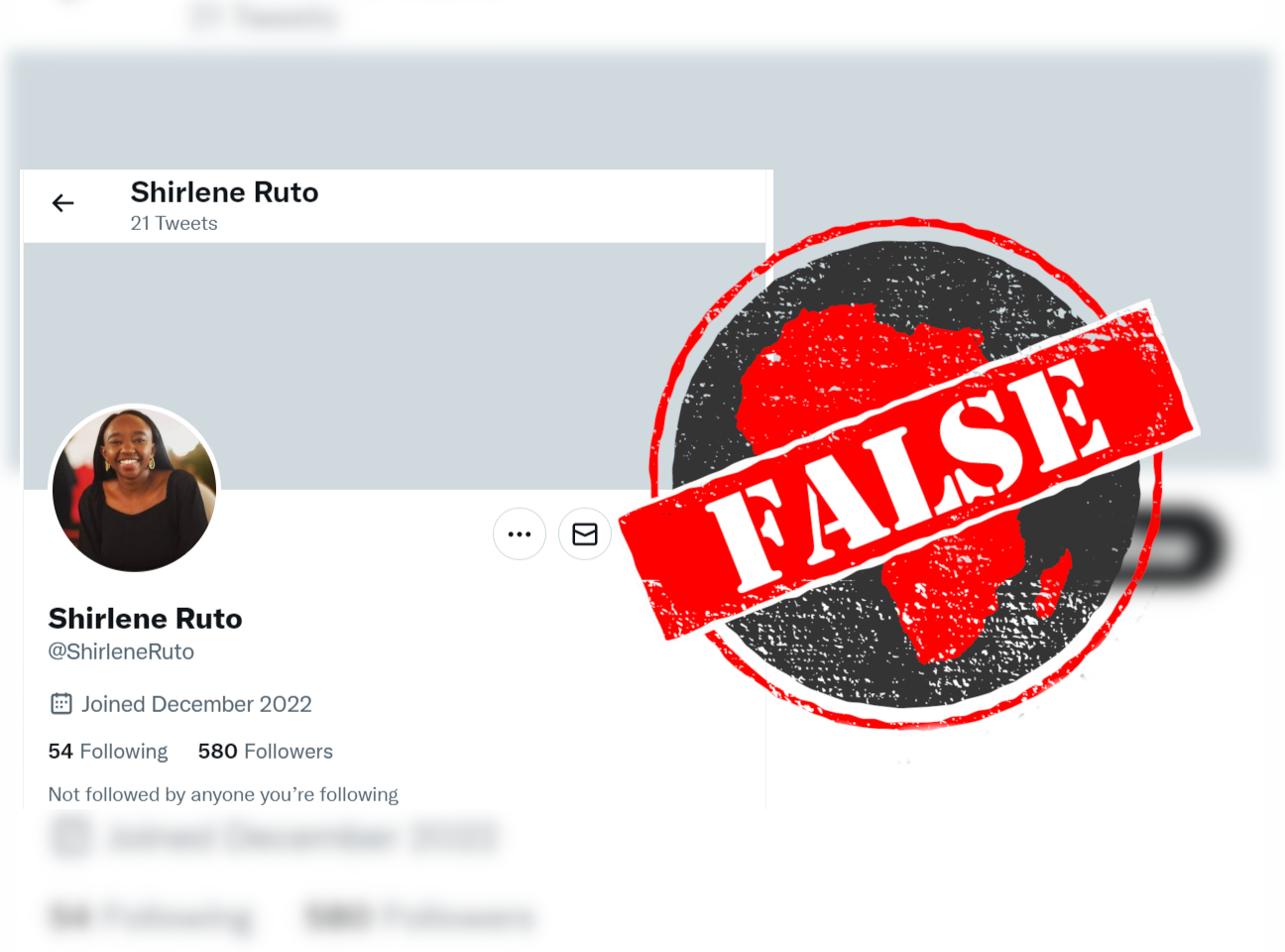IN SHORT: From complete anonymity, Charlene Ruto has shot to national prominence in recent weeks after a barrage of public engagements. But a Twitter account using her name is run by an imposter.
In recent weeks Charlene Ruto, the daughter of Kenya’s new president William Ruto, has shot to national prominence on the back of a raft of public engagements.

Since her father's inauguration in September 2022, Charlene has attended several high-profile events and meetings.
On 13 December, during a regional trip, she came in for sharp scrutiny when she introduced her delegation as staff of the “office of the first daughter”.
Kenya’s constitution does not provide for such an office.
In response, the younger Ruto said the office was a private entity not funded by Kenyan taxpayers. “The office runs to purely facilitate the activities of & any programs run by Ms. Charlene Ruto,” her statement reads.
Amid the uproar, a Twitter account named “Shirlene Ruto” began tweeting from the handle “@ShirleneRuto”. The account uses Ruto’s photo and has so far attracted hundreds of followers.
On 15 December the account tweeted that it would not be “intimidated” by questions about her activities. It also claimed that a previous account had been suspended.
But is this really Charlene Ruto’s new Twitter account?
Real account 11 years old
Charlene Ruto’s legitimate Twitter account is unverified, but she tweets from @charlruto. The account’s description is the“First Daughter of Kenya”.
As of 19 December it is still up and active, pointing towards the inauthenticity of the new Twitter account.
Her real account has more than 39,000 followers and was created in September 2011.
And Charlene Ruto would be unlikely to spell her name as “Shirlene”.
Republish our content for free
For publishers: what to do if your post is rated false
A fact-checker has rated your Facebook or Instagram post as “false”, “altered”, “partly false” or “missing context”. This could have serious consequences. What do you do?
Click on our guide for the steps you should follow.
Publishers guideAfrica Check teams up with Facebook
Africa Check is a partner in Meta's third-party fact-checking programme to help stop the spread of false information on social media.
The content we rate as “false” will be downgraded on Facebook and Instagram. This means fewer people will see it.
You can also help identify false information on Facebook. This guide explains how.




Add new comment